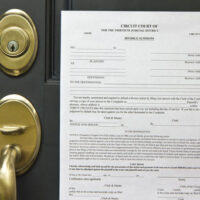Can You Stop a Divorce?

Facing the possibility of divorce is difficult even if both spouses acknowledge the need to end the marriage. Things become infinitely more complicated when one spouse is blindsided by a request for divorce and/or does not want the relationship to end. Divorce is designed to sever a union by separating out pieces of the life a couple built together, and absorbing and responding to this fact is challenging when one spouse does not think the marriage is irredeemably broken. The State has an interest in supporting the integrity of marriage, but also recognizes the reality that not all relationships last and making the process to divorce overly burdensome is not productive or fair. To this end, Florida adopted a no-fault divorce system in 1971 that does not require the spouse petitioning for dissolution prove the other party was at fault for the failure of the marriage. Instead, a person wishing to divorce simply needs to present some form of evidence the marriage is irretrievably broken. However, what does that mean, and what options does the other spouse have if he/she does not want a divorce?
Marriage Is Irretrievably Broken
While only one party needs to claim the marriage is irretrievably broken, something more than just this statement must be established before a judge will agree divorce is appropriate. Though the standard is not particularly high, some factual evidence will need to be presented on one of the following:
- The marriage relationship has ended, e., the couple has been separated for a long time or a spouse no longer loves the other;
- The marriage is no longer viable, which can be the result of issues like mental/physical abuse, substance abuse, or criminal activity; or
- The marriage is a “hollow sham” that is no longer capable of repair or reconciliation.
The other spouse does not have to support this claim in order for a court to accept it, so methods of delaying the case to see if the relationship can be saved is the best option a spouse has when divorce is not the desired outcome.
Challenging Need for Divorce
Since just one spouse can initiate and litigate a divorce, what can the other spouse do, if anything, to stop the proceedings? The primary option a spouse has in this situation is to request an order for counseling in order to have the case stayed pending the outcome. Orders to stay the case may be made by mutual consent of the parties, and include a time period to attend counseling, usually 90 days. If counseling does not work, the stay would be lifted at the end of this period and the case allowed to proceed. These requests may also be made through a motion to the court if the other side will not consent. A hearing will be held, and each spouse allowed to argue for and against counseling, after which the court will decide whether to grant it. In addition, a spouse can claim the marriage is not irretrievably broken, which needs to be made in the initial filing, and a court then has the option of delaying the case so the couple has time to think and possibly reconcile and/or order them to counseling to see if the marriage can be saved. While these attempts to save the marriage may not ultimately stop the divorce, it will give a couple the opportunity to make one last effort to repair outstanding issues.
Talk to a Florida Divorce Attorney
Accepting the end of a relationship is extremely hard, and if you are facing an unwanted divorce, you must not ignore it. Talk to an experienced divorce attorney about how to respond, and what to do if the divorce is going to proceed regardless of your wishes. The attorneys at the office of the Donna Hung Law Group know how hard this process is, and will provide the guidance you need to navigate as smoothly as possible. Contact the Orlando divorce firm at (407) 999-0099 for a consultation.
Resource:
leg.state.fl.us/Statutes/index.cfm?App_mode=Display_Statute&Search_String=&URL=0000-0099/0061/Sections/0061.052.html
https://www.donnahunglaw.com/the-consequences-of-misconduct-during-divorce/
